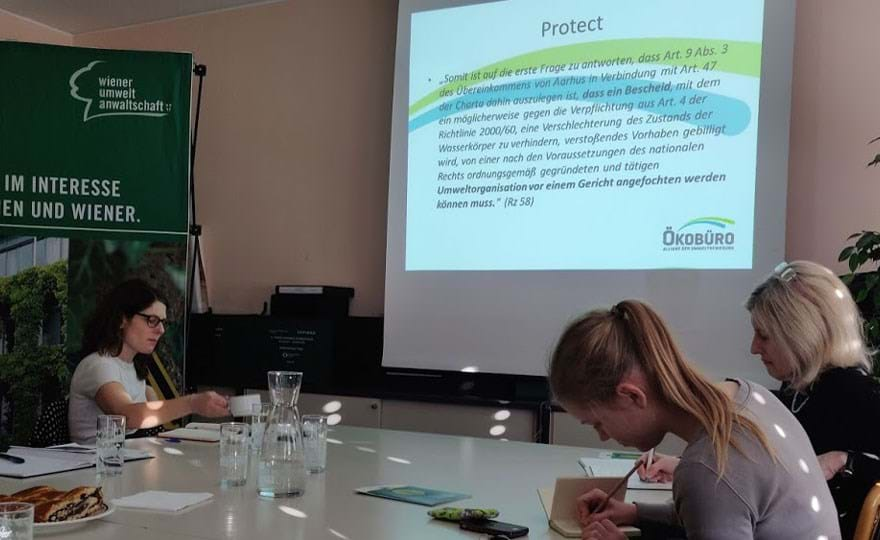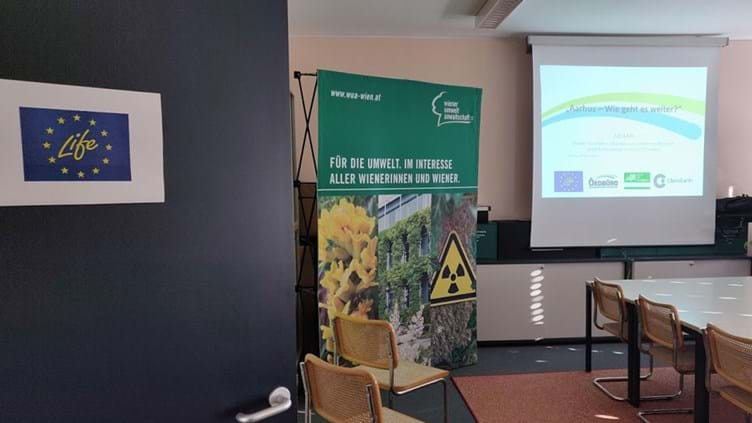ClientEarth Communications
5th February 2019


On 17 January 2019, ÖKOBÜRO held the first EARL training in the office of the Environmental Ombudswoman of Vienna (Umweltanwaltschaft Wien). She attended the training together with her staff and other participants coming from the Federal Ministry for Sustainability and Tourism, an environmental NGO, the nature conservation department of Vienna and the Law faculty of the University of Vienna.
The relevant provisions of the Aarhus Convention, EU law and Austrian law were presented to the audience, along with the most important case law of the ACCC, the CJEU and the Austrian supreme administrative court and the specific barriers to access to justice in Austria.
The discussion later focused on the recent draft legislation affecting access to justice in Austria at the federal and state levels:
As a result, attendees acknowledged that the broad access to justice and generous rules of participation demanded by the Aarhus Convention would probably not be granted and that great legal uncertainty was inevitable.
Due to ongoing legislative processes and numerous uncertainties, it also remains to be seen which changes will eventually come into force and how they will be applied in practice.


The next training sessions will address further developments in these matters.
Access to Justice is a fundamental means through which citizens and NGOs can support the implementation and enforcement of laws and policies to protect the environment. The goal of this ATOJ-EARL project is to achieve “Access to Justice for a Greener Europe”. It strives to enhance access to justice in environmental matters by providing information, training and support for the judiciary, public authorities and lawyers of eight European member states. ClientEarth and Justice and Environment are implementing this project with the financial support of the European Commission’s LIFE instrument.
